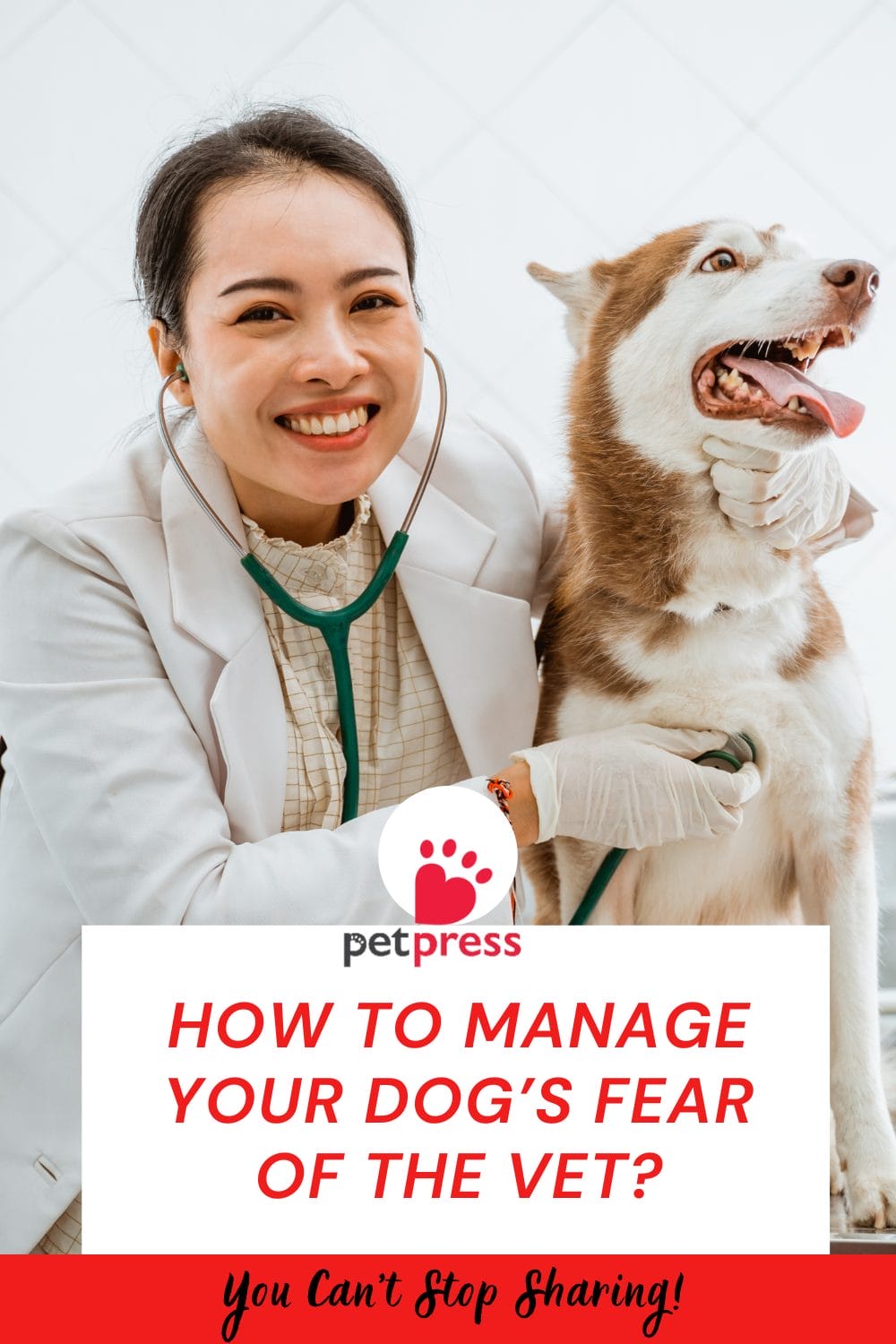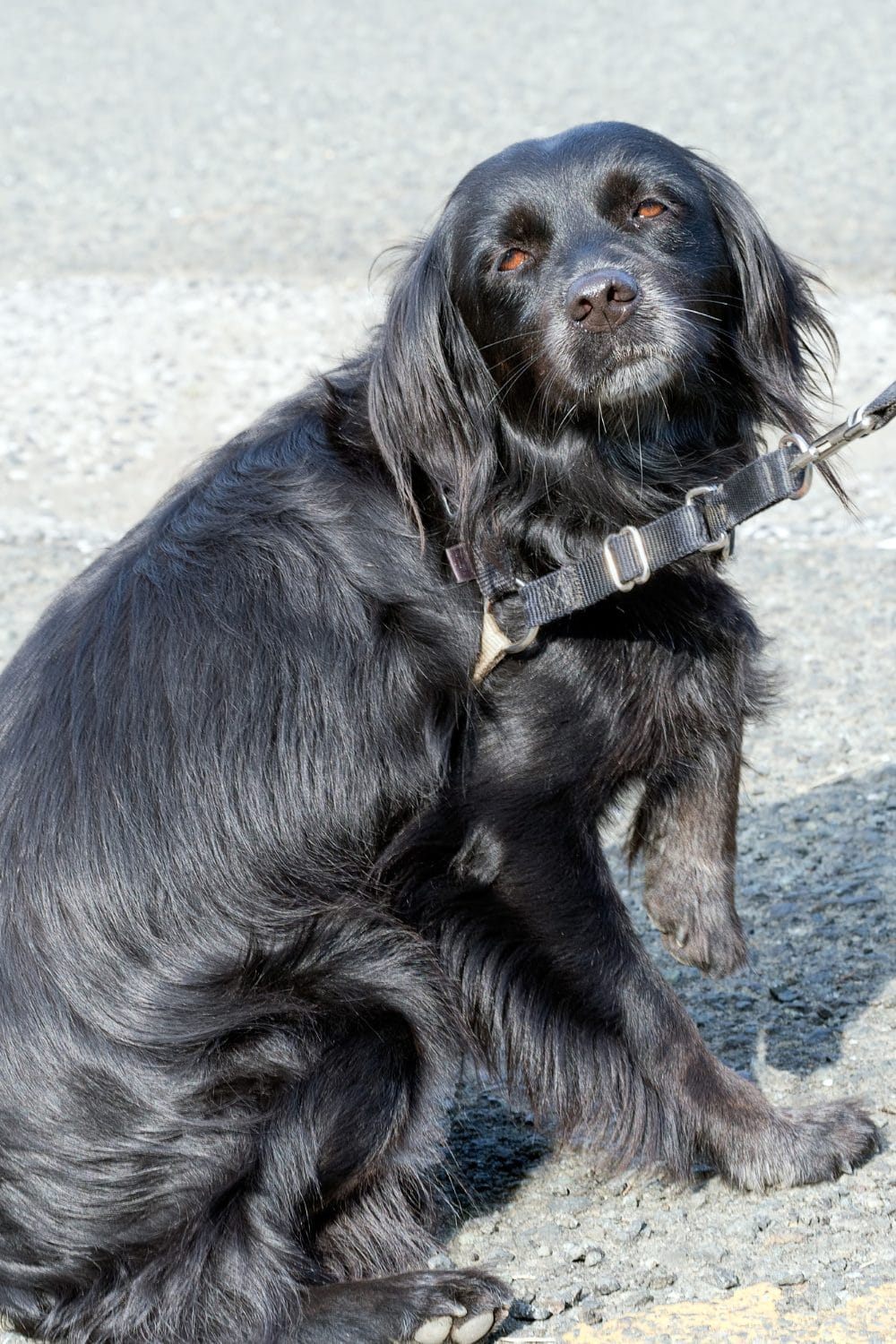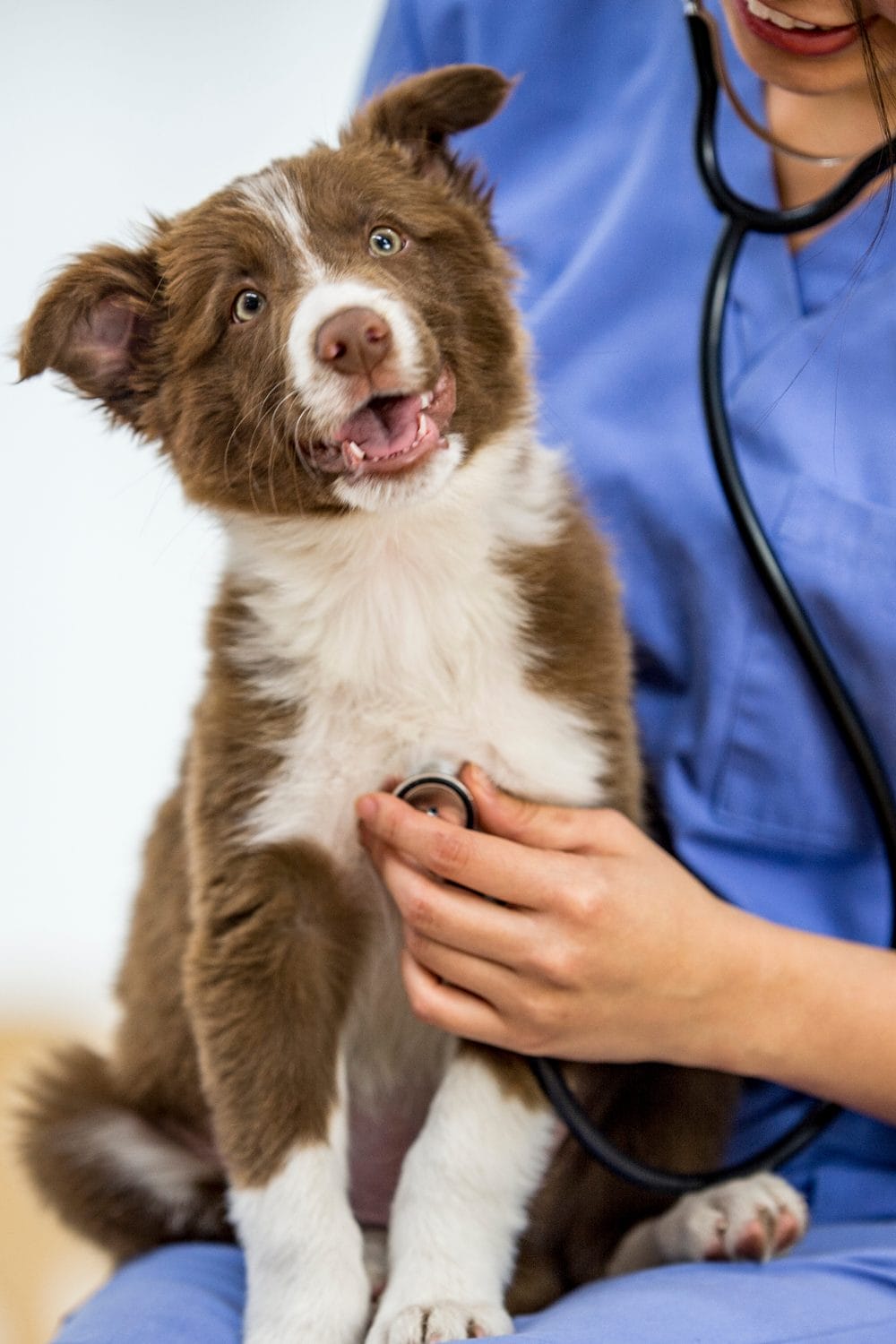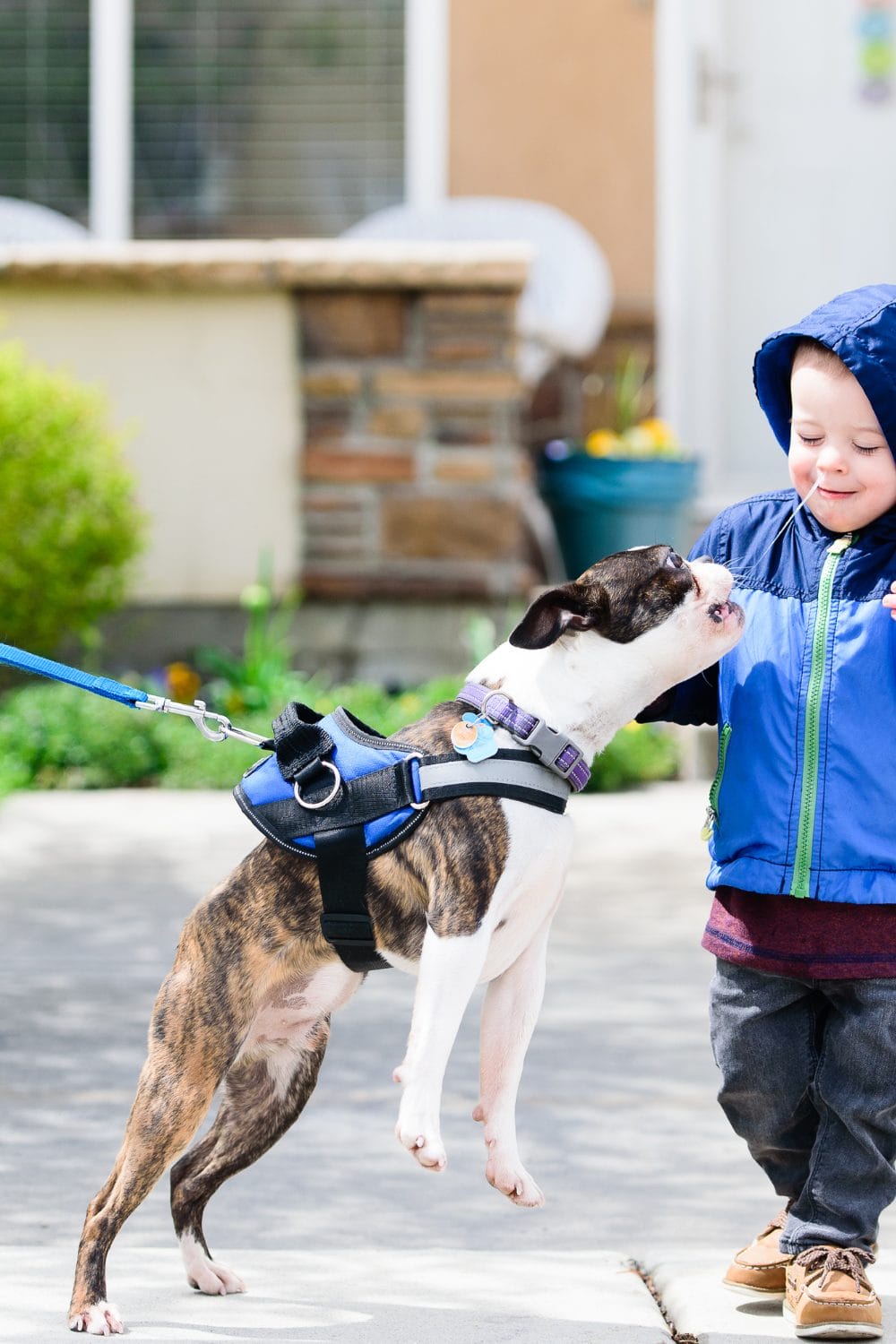
Visiting the vet is an essential part of ensuring your dog’s health and well-being. However, for many dogs, a trip to the veterinarian can be a source of fear and anxiety.
This fear can make routine check-ups or emergency visits stressful for both pets and their owners.
Understanding why How To Manage Your Dog’s Fear of the Vet and how to manage this anxiety is key to making the experience more comfortable.
In this article, we’ll explore the causes of Manage Your Dog’s Fear of the Vet, identify signs of stress in your dog, and provide actionable tips to help your canine companion remain calm and composed during vet visits.
Importance of Veterinary Care For Dogs

The field of veterinary medicine dates back thousands of years, with ancient civilizations like Egypt and India recording the treatment of animals.
However, modern veterinary practices as we know them began taking shape in the 18th century with the establishment of dedicated veterinary schools.
Over the centuries, veterinarians have evolved into critical partners in pet care, providing preventative treatments, diagnosing illnesses, and performing life-saving surgeries.
Despite these advancements, a dog’s fear of the vet remains a challenge, partly due to the unfamiliar sights, sounds, and smells of the clinic.
The Significance of Managing Vet Fear
Addressing your dog’s fear of the vet is crucial for multiple reasons:
- Regular Health Checks: Fearful dogs may resist regular vet visits, delaying essential preventative care like vaccinations and dental cleanings.
- Accurate Diagnoses: Stress can elevate heart rates, mask symptoms, or make it difficult for veterinarians to perform thorough exams.
- Strengthened Bond: When you take steps to ease your dog’s anxiety, you build trust and deepen the human-animal bond.
- Emergency Preparedness: In emergency situations, a calm dog is easier to treat, potentially saving precious time.

Why Do Dogs Fear the Vet?
Understanding the root causes of vet anxiety can help you better address your dog’s fears:
- Unfamiliar Environment: Vet clinics are filled with strange smells, bright lights, and unfamiliar people, which can be overwhelming.
- Previous Negative Experiences: A painful injection or a frightening restraint in the past may cause your dog to associate the clinic with discomfort.
- Sensitivity to Handling: Some dogs dislike being touched in certain areas or being restrained, both of which are common during exams.
- Separation Anxiety: Being separated from you, even briefly, can heighten your dog’s stress levels.
- Scent of Other Animals: The lingering smell of other animals in distress may trigger fear in your dog.
Signs Your Dog Is Afraid of the Vet

Recognizing signs of fear can help you take proactive steps to comfort your dog. Common indicators include:
- Body Language: Tail tucked, ears pinned back, crouching, or trembling.
- Vocalizations: Whining, barking, or growling.
- Physical Symptoms: Excessive panting, drooling, or even vomiting.
- Resistance: Refusing to enter the clinic, pulling on the leash, or hiding behind you.
- Aggression: Snapping or biting, which often stems from fear rather than outright hostility.
Tips to Manage Your Dog’s Fear of the Vet
Here are practical strategies to help your dog feel more at ease:
Familiarize Your Dog with the Clinic
- Take your dog to the vet’s office for non-medical visits to familiarise them with the environment.
- Allow your dog to sniff around and meet the staff, creating positive associations with the clinic.
Practice Handling at Home
- Regularly touch your dog’s paws, ears, and mouth to help them get used to being handled.
- Use treats and praise to reward calm behavior during these sessions.
Use Positive Reinforcement
- Bring your dog’s favorite treats or toys to the appointment.
- Reward your dog before, during, and after the visit for calm and cooperative behavior.
Schedule Strategically
- Choose a quiet time for your appointment to avoid crowded waiting rooms.
- If possible, ask to wait in your car until the vet is ready to see you.
Consider Desensitization Training
- Gradually expose your dog to elements of a vet visit, such as riding in the car, wearing a leash, or sitting on an exam table.
- Increase the intensity of these experiences slowly over time, ensuring your dog remains comfortable.

Use Calming Aids
- Consider pheromone sprays, calming collars, or anxiety wraps.
- Consult your vet about prescription anxiety medications if your dog’s fear is severe.
Stay Calm and Reassuring
- Dogs pick up on your emotions, so remain calm and confident.
- Speak in a soothing tone and avoid reinforcing fear by over-coddling.
Work with a Professional Trainer
- A trainer or behaviorist can provide targeted techniques to reduce your dog’s fear.
- Look for professionals who specialize in desensitization and counter-conditioning.
Conclusion

Helping your dog overcome their fear of the vet is a gradual process that requires patience, consistency, and empathy.
By understanding the causes of their anxiety and implementing practical strategies, you can make vet visits less stressful for your furry friend.
Remember, your efforts not only improve their immediate experience but also contribute to their long-term health and well-being.
With preparation and care, vet visits can become a manageable part of your dog’s life rather than a dreaded ordeal.
FAQs
If your dog exhibits extreme fear responses, such as aggression, refusal to enter the clinic, or physical symptoms like vomiting or diarrhea, their anxiety may be severe. In such cases, consult your veterinarian or a professional behaviorist for tailored advice.
Yes, in some cases, veterinarians may prescribe anti-anxiety medications to help dogs cope with severe fear. Discuss this option with your vet to determine if it’s appropriate for your pet.
While fear of the vet can affect any dog, breeds with naturally anxious temperaments or those that are highly sensitive to new environments may be more prone to vet-related stress.
It’s best to start as early as possible, ideally when your dog is a puppy. Early exposure to handling, car rides, and vet visits can help prevent fear from developing later in life.
If your dog shows aggression, inform the vet staff immediately. They may use specialized handling techniques or recommend a muzzle for safety. Long-term, work with a trainer to address the underlying fear and aggression.
- Dogs Pooping Blood: A 2026 Guide for Concerned Pet Parents - February 23, 2026
- How to Celebrate a Dog’s First Birthday on a Budget: 2026 Guide - February 18, 2026
- Best Shampoo for Sensitive Skin Dog Grooming: 2026 Guide - February 12, 2026


GIPHY App Key not set. Please check settings